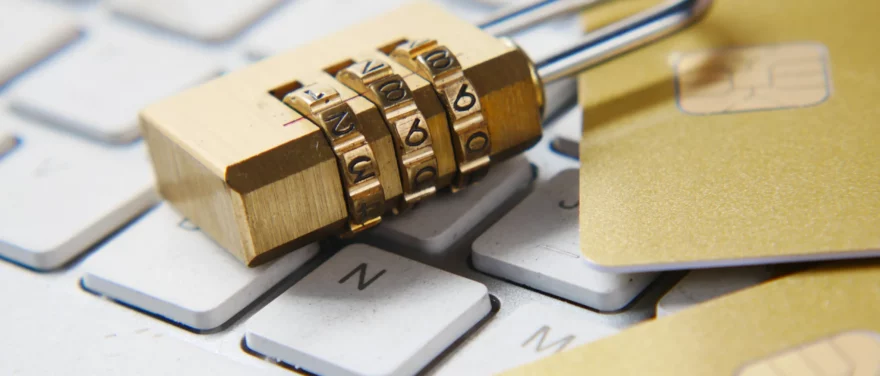
Privacy and the internet do not necessarily go hand in hand. You can take steps to secure your internet connection, the information you share with certain parties over the internet, and the data you store on your computer, cell phone, laptop, and tablet. However, the fact remains that anyone who is smart enough to override your protective measures can hack your system and gain access to everything you have ever posted, shared, or stored. Learn more about Internet privacy in the following.
What Is Internet Privacy?

The most commonly used definition of internet privacy is extremely broad. It states that internet privacy and security are based on the level of protection a person has from computer software, anti-virus software, and the level of public access to the internet server they use. An internet service provider offers various levels of security. The first level is normally public, which means anyone can access the connection. It also indicates that if someone has access to the server, they may also be able to hack into other individuals’ devices and access their information.
A work zone normally offers medium security. This indicates that only people who are working within the same system can access another person’s information or monitor their web navigation. This setting is often used by large companies where all employees use the same server and general access code. Once a computer is logged onto the system, it can access the main server at any time.
The server with the highest level of protection is often labelled “home”. This is often the level of security most homeowners choose. It allows them to protect their personal information from being hacked by outside predators. With this type of server, a passcode must be used that identifies the device to the router. In most cases, the person must get the passcode from the service provider or take the serial number directly off the router to gain access.
Internet Privacy Issues
Privacy issues on the internet usually arise from hacking into other computers and stealing or deleting important information. Other malicious users hijack devices, enabling themselves to take control of the camera as a way of stalking or monitoring another person’s movements or activities. In addition, viruses, among other forms of malware and spyware can cause damage to the computer, resulting in slower processes. In certain cases, they can actually damage the hard drive and motherboard so badly that the computer ceases to function at all.
Expectation of Privacy
Privacy and security on the internet can be achieved to an extent. However, there will never be a complete certainty. Anyone with adequate knowledge of how a system or server works can make their way into your system and do almost anything they want. Once they have access to the main system, every piece of information on a device is up for grabs.
That being said, everyone has a reasonable expectation of privacy when it comes to internet use only when they are using a secure and protected server. Public and work zones do not provide for this and internet privacy should not be expected if you are logged into a server with a medium to low level of security.
Privacy on the internet is only as good as the level of protection a person has, be it through their own anti-virus software or through the level of protection offered by the internet server. People can protect much of their information by frequently changing their passwords on their devices as well as on their important personal accounts.
It is also important to be conscious of where specific types of accounts, such as bank accounts, credit cards, etc., are accessed. Many people access their accounts using their phones. If the phone is using a public Wi-Fi source, the protection level will be extremely low.
You Are Being Watched
The majority of people are unaware of the cookies and other digital bits of information that are continually being stored on their electronic devices. Most social media accounts and search engines collect cookies from devices on a regular basis. They then use that information to generate ads for products you have recently shown interest in.
Search engines, especially, will retrieve cookies and monitor the use of their search engine to help in developing rankings for companies and websites. Most of the information is safe because it only shows how you use the internet. It does not necessarily offer an excessive amount of personal information, although it can if you agree to allow them to see your age, location, and other personal identifiers.
Internet Safety for Families
Any family that has children or impressionable young adults should look into providing a safe and secure internet connection through a reputable internet service provider. Parents should also consider using various parental controls as well as teaching their children how to surf the web safely. Teaching children the best methods to secure their information will protect them from unknown risks. Such methods can include:
- Changing passwords frequently
- Not using the same password twice
- Never use your birthday as a password
- Never give out personal information about yourself or your family
- Never include pictures of yourself in texts or messages to people you do not personally know
There is a lot of information on the web that details the importance of Internet privacy. They often include crucial tips that can be used against new threats to your privacy and security. As long as technology keeps advancing, there will always be someone or something that can hack into your personal information, and you should always be prepared.
Internet Privacy Precautions
Consumers can protect themselves in a variety of ways. There are several internet privacy laws in place that can help prosecute individuals who steal and use information that does not belong to them. Individuals can use precautions like 2-step authentication codes and captchas to secure their information. A captcha is a small code that must be entered manually into a box and verified. Automated systems cannot respond appropriately to captchas, thus tightening the possibilities for hackers.
A 2-step authentication process works in very much the same way. Instead of a captcha, a person receives a text or message with a specific code that can only be used one time. Once a person tries to log in, they are sent a text message containing the code. They then must type the code into the designated space on the computer. If it is correct, they will be redirected to where they need to go online. This is often used by government agencies like the IRS, which deals with individuals’ financial and tax information. Such websites that contain sensitive information require further guarantees of Internet privacy.
Child Protection Act
The internet can be a dangerous place for children who do not know how to protect themselves. There are laws such as the Internet Privacy Act and the Child Protection Act that make it harder for online predators to victimize children. Many websites that are designed for children, and even more that are not, require some sort of verification from a parent or a legal guardian who grants the child permission to enter the website.
This protects the child from making purchases or misusing a site for any other purpose than for which it was intended. Educational sites encourage parents to navigate the site with their children and to remain in close proximity while they are online. This prevents them from accessing websites and other harmful web pages where paedophiles or other predators may be lurking.
While most people have a reasonable expectation of Internet privacy, they should always remember it is not guaranteed. With the right tools, a hacker can effectively retrieve any and all of their personal information. It’s better to find ways to protect yourself and your children than to become victims to unscrupulous internet predators.
